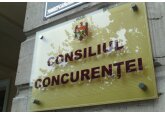
CNA has identified risks of corruption in the draft law on the National Fund for Regional and Local Development and advocates a clear procedure for selecting a bank to manage the Fund’s means.
The National Anti-Corruption Center (CNA) reports that after studying the draft law on the National Fund for Regional and Local Development, which would unite the National Environmental Fund, the National Fund for Regional Development, the Road Fund, the National Fund for Agricultural and Rural Development and the Energy Efficiency Fund, the CNA experts found flaws and corrupt practices in the Fund's management. In their opinion, these rules, analyzed in the light of national and international anti-corruption standards, jeopardize the climate of institutional integrity. Another corruption risk identified was that the commercial bank that would manage the funds for the investment project from external aid sources would be chosen arbitrarily, and this aspect of the law allowed for derogations and misinterpretations, as shown in the CNA report. At the same time, as noted by the experts of the National Anti-Corruption Center, the text of the bill incorrectly regulates the areas available for funding. Moreover, these shortcomings undermine the realization of public interests and affect the level of trust in the organization, which manages this issue. Thus, CNA recommends both the regulation of the criteria for selecting commercial banks that will perform the financial operations of the project, as well as limitations on the financial operations. Moreover, analyzing the draft law on the facilitation of the additional issuance of Energocom shares by exempting from taxes and payments during the issuance and registration process, CNA warns that the project creates prerequisites for compromising integrity in the public sector. In addition to the fact that the bill allows for abuse and subjective treatment, it could set a dangerous precedent by discriminating against other entities in similar circumstances. Even if the anti-corruption review is advisory in nature, CNA insists that all objections based on the regulations be removed by the authorities so that the risks of corruption are minimized. Anti-corruption expertise is the process of identifying corruption risks that may arise in the promotion of draft laws and regulations by state structures, the factors that give rise to them, and the development of recommendations to eliminate their consequences. CNA conducts anti-corruption expertise since 2006. // 28.12.2021 - InfoMarket







